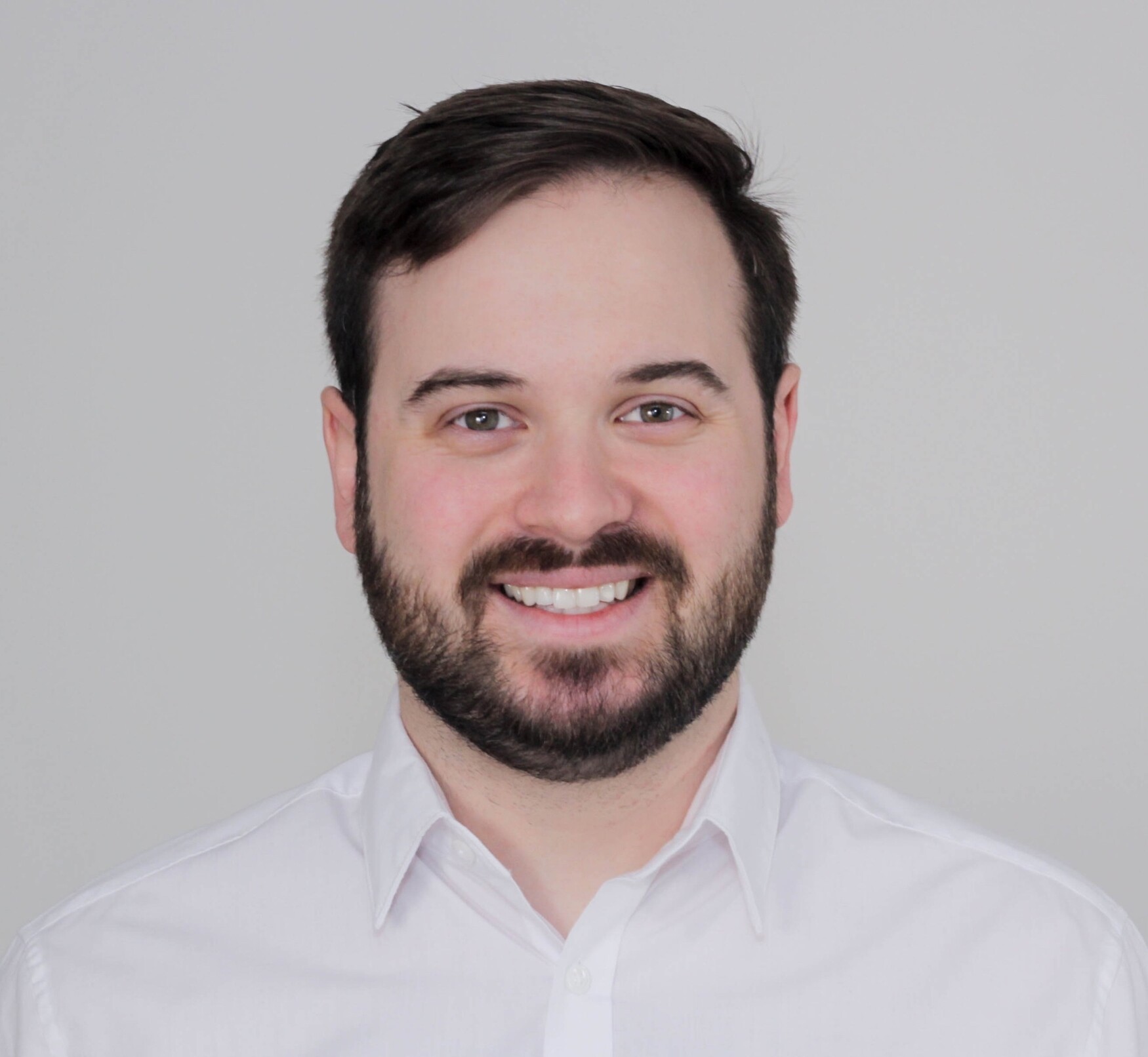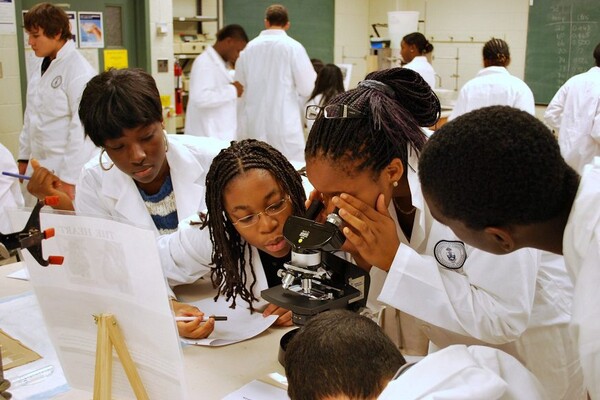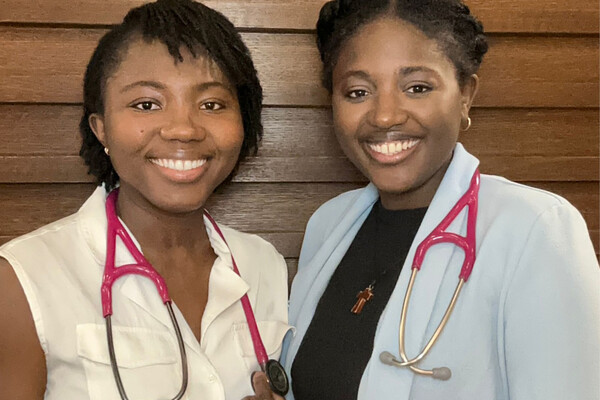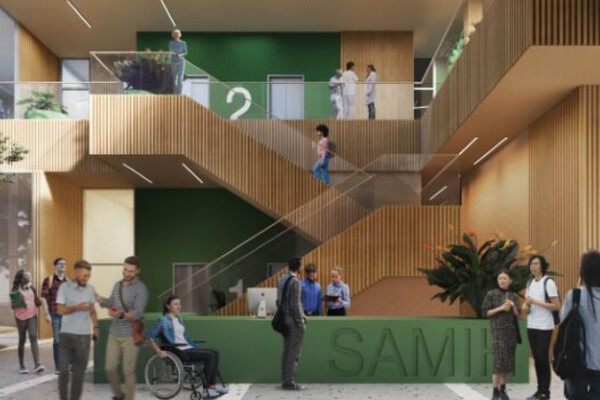Main Second Level Navigation
Breadcrumbs
- Home
- News & Events
- Recent News
- Faces of Temerty Medicine: Eliot Winkler
Faces of Temerty Medicine: Eliot Winkler

Eliot Winkler launched his medical school journey after several years in the health and social services sectors during which he focused on supporting, advocating for, and researching the experiences of people living with HIV and AIDS. A recipient of the Michael Gregg Scholarship (established in memory of the late Michael Gregg, in support of a first-year MD student who demonstrates interest or achievement in the field of HIV/AIDS research, as well as compassion and human understanding), Winkler reflects back on his first year of studies in the Temerty Faculty of Medicine’s MD Program.
What were you doing before medical school?
I’m what some might call an “older” student - I have a B.Sc. in Physiology and Biology, as well as an M.Sc. in Clinical Anatomy from Western University. After graduating, I moved to Toronto and worked as a Clinical Research Coordinator at Toronto General Hospital.
In 2018, I left TGH for a new position at the Ontario HIV Treatment Network (OHTN). The OHTN serves as a backbone organization for all AIDS Services Organizations in the province and works with governmental and public health agencies to capture how HIV impacts Ontarians. As a member of the queer community, I was interested in finding a way to give back.
At the OHTN, I worked as the Research Coordinator for the OHTN Cohort Study — a large-scale, longitudinal cohort study held at 13 sites in Ontario with more than 5,000 participants living with HIV. We worked with participants to capture and record relevant psycho-social and clinical information about their lives. I was also an independent researcher investigating the barriers faced by people living with HIV when accessing services in Ontario. I had the opportunity to sit on the HIV Mental Health Network Steering Committee, where I helped create events, professional development content, and a support system for mental health workers in the Greater Toronto Area HIV sector. I also volunteered at the AIDS Committee of Toronto as an HIV Support Group Facilitator to support people living with HIV around planning for the future. Collectively, these formative experiences shaped me into the person I am today.
What inspired you to pursue medical school? How did your previous working experiences inform your first year of studies at Temerty Medicine?
Medicine had always been of interest to me, ever since I was very little. It sounds like a cliché, but I have always wanted to help others and I think advocating for patients’ health is one very important way of doing so.
My experiences working in collaborative environments at TGH and OHTN really set me up for success this past year. It was a little jarring coming back to school as a 29-year old, but I was grateful to have had prior experience as part of a healthcare team and a consistent support network here in Toronto. As a mature student, I feel like I came to medical school with a strong sense of self.
A beautiful thing about the HIV sector is how it is rooted in community advocacy and community work. You learn directly from people in the field — those doing the work who are possibly living with HIV themselves. Amplifying these voices allows for equitable sharing of lived experiences and is the mindset we should be taking with all our patient populations. This approach really allowed me to connect and learn from patients – they are the experts in their own medical journey.
What most appealed to you about U of T and the Temerty Faculty of Medicine for your MD studies?
A big part of why I chose U of T is the diversity of its student population, faculty, and experiences. Toronto has been my home for five years and it means a lot to be a medical student in the city I love so much. I knew that I wanted to keep working with the HIV and AIDS community during medical school and staying in Toronto would allow me to continue to be connected to my existing network.
What was it like as a medical student during COVID? Were all your classes virtual? How did you and your peers navigate that environment?
I think the Faculty did an incredible job adjusting our curriculum to work in a nearly-entirely online model. We were also fortunate to have some in-person learning opportunities – clinical experiences and anatomy labs – that really solidified what we were being taught.
It was definitely challenging though to be learning on Zoom every day, especially when it came to trying to master clinical skills virtually. That said, being a member of “the COVID cohort” really helped my class bond and connect with one another. True, we were mainly interacting with each other online, but because of that, we were all really open to making connections with each other. I think the shared challenges we faced created an instant bond that will link us together forever.
You received the Michael Gregg Scholarship during your first year of studies. What did that mean to you and what impact did it have on your experience?
Receiving the Michael Gregg Scholarship was incredibly beneficial for me. I left a full-time career to come to medical school — going from a steady income to none at all. The scholarship helped provide a much-needed safety net. It allowed me to stay involved in my work within the HIV sector and community, which was paramount.
One of the biggest highlights of the year, though, was being able to continue my work with the OHTN as an independent researcher looking at barriers or gaps faced by people living with HIV on a broad scale. At the start of the pandemic, we implemented a module in our annual questionnaire on how COVID was affecting participants’ ability to access services. I was later able to present our findings at the Community-Based Research Centre’s Queer Men’s Summit, as well as at the Canadian Conference on HIV/AIDS Research, and I am writing up a manuscript for publication this summer.
The Michael Gregg Scholarship was key to helping me to pursue this work outside of school — without it I may have had to take on a part-time job. I’m very grateful to the Gregg family for their support and am committed to paying it forward wherever and whenever I can in the future.
What do you think lies ahead for you? Do you see yourself continuing to focus on HIV and AIDS in the future?
While it’s hard to tell exactly where I’ll end up, I know that whatever I do in the future will include a connection to the HIV sector, even if I’m not specifically working in infectious disease. There are so many ways you can be an advocate for the community, no matter what your role. Whatever path I pursue in medicine, I know I’ll be involved in the HIV sector, and I am confident my training at U of T will only strengthen my advocacy efforts.
News


